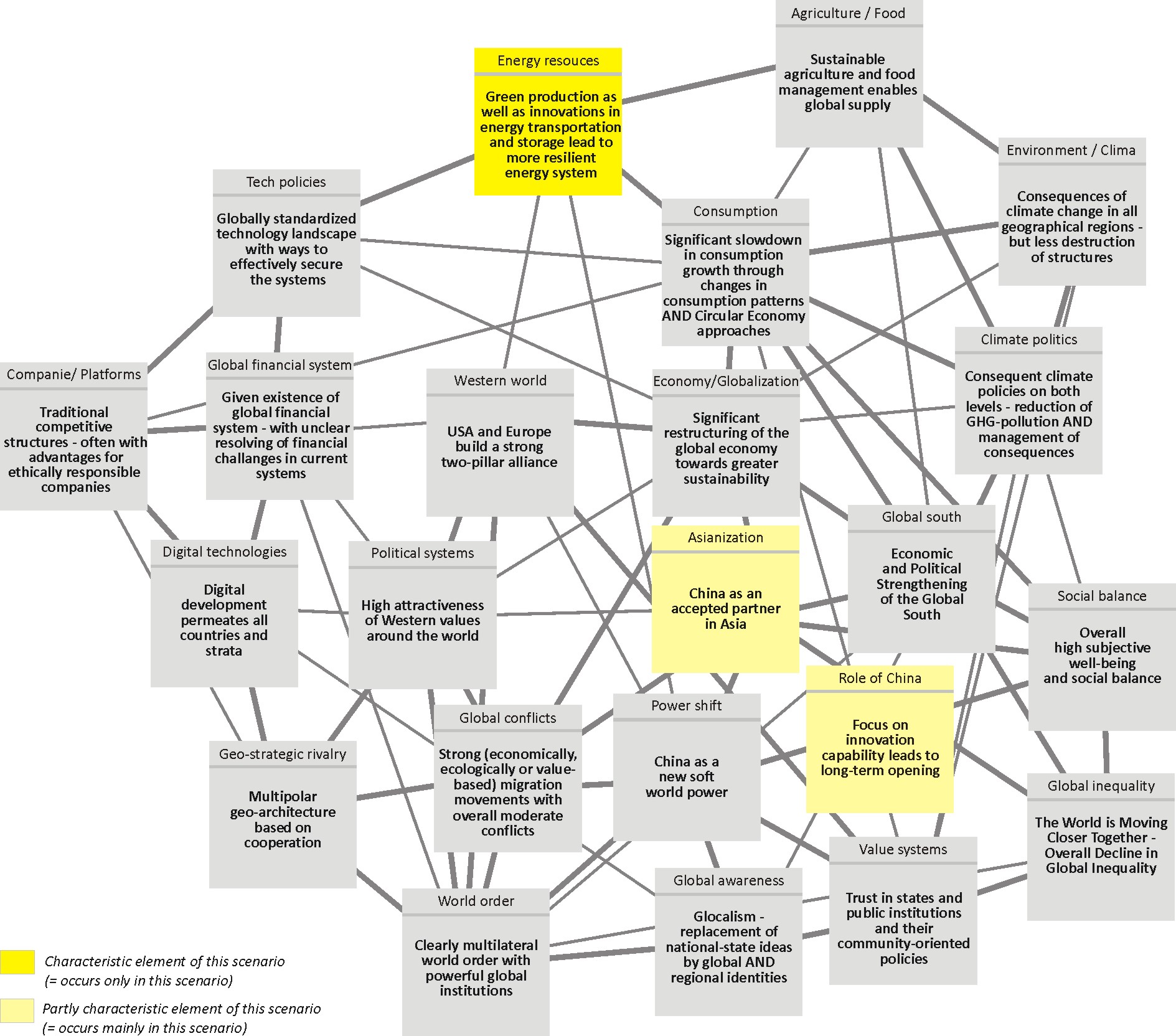Global awareness
Sustainable transformation through cooperation
- Clearly multilateral world order with powerful global institutions
- China opens up (economically and politically) and becomes a leading nation and an accepted partner in Asia and around the world
- Economic and political strengthening of the Global South
- The world is moving closer together – Overall decline in global inequality
- Consequent climate policies and significant restructuring of the global economy towards greater sustainability – including changes in global financial system
The world is moving closer together – not only economically, but also socially and politically. A global awareness of shared responsibility and multilateral solutions is emerging, strongly influenced by global institutions such as the United Nations. This is based on universal human rights and values such as freedom, the rule of law and tolerance. Strong global institutions are no longer Western-dominated, but represent the full range of nations, including particularly the politically strengthened „Global South“. Nevertheless, the United States and the European Union remain strong players and drivers of the cooperative world order.
China has opened up economically as well as politically and culturally, becoming a leading nation and an accepted partner in Asia and around the world. Global inequality has decreased overall, mainly due to the growth of a global middle class in China, Asia and large parts of the former developing world. This leads to a decrease of the condition for many global crises. The world is experiencing an overall peaceful development with only moderate migration movements.
The consequences of climate change are being felt all over the world, but without challenging the state structures in the particularly affected regions. Rather, a globally coordinated climate policy is becoming the central „world project“, which, beyond dealing with the consequences of climate change, also includes a significant reduction in greenhouse gas emissions. An essential cornerstone of this policy is the production of renewable energies combined with innovations in energy transport and storage.
Transforming the global economy toward greater sustainability also involves overcoming the traditional growth and free trade paradigm, for example by changing consumption patterns and expanding circular economies. The agriculture and food sectors are also increasingly shifting to sustainable approaches without compromising global supply. This is possible because innovations can develop freely on the basis of global technology standards. The global financial system is being adapted to the changes in the multipolar geo-architecture.




